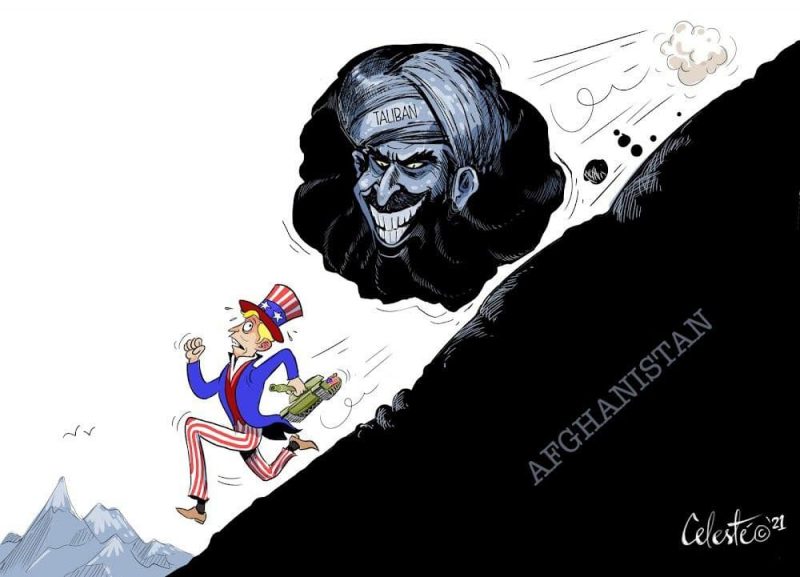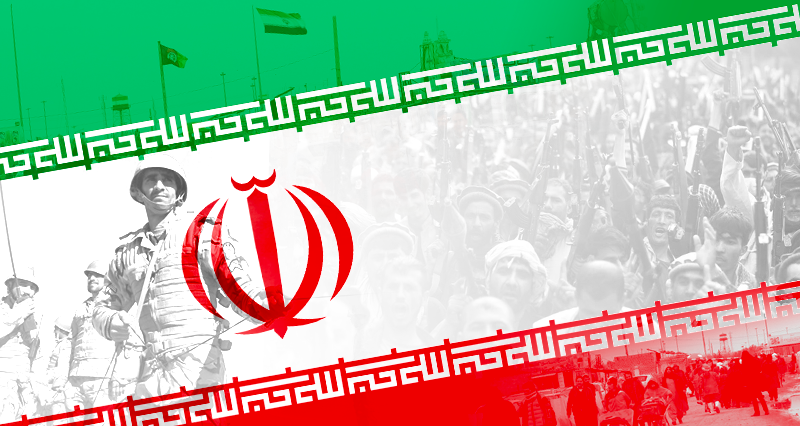Iran considers Afghanistan an important strategic neighbor. The tumultuous history of relations between the countries over the last 40 years has proven that internal developments in Afghanistan can have direct impact inside Iran. First of all, Iran hosts more than 3 million Afghan refugees: any major change in Afghanistan’s security situation could lead to a new wave of refugees toward Iran. Furthermore, the security of Iran’s eastern borders also must be raised, given that the countries’ share 945 kilometers of border space. There are also environmental concerns due to the bordering rivers flowing from Afghanistan to Iran. On top of that, we must consider the faith of 10 million Shiites in Afghanistan, as well as, cultural- historical ties with Iran, making them far from indifferent about the events in the neighboring Persian speaking country. In this regard, as the Taliban rises, Iran’s relations with Afghanistan have become more important than ever for the future of the region.
After a brief look at the relations between Iran and the Taliban over the past few decades, we will discuss possible scenarios for the future of their relations.
Iran-Taliban relations
Iran has a complicated relationship with the Taliban ranging from enmity to cooperation. Reporter’s Day in Iran is named on the occasion of the day Mahmoud Saremi, a reporter for the Iranian state news agency murdered in Afghanistan. Every year, he and the other 10 Iranian diplomats who were killed by the Taliban in Mazar-e-Sharif are commemorated. On August 8, 1998, during the civil war that continued in Afghanistan after the Soviet withdrawal, 10 Iranian diplomats and a journalist were killed following the Taliban occupation of Mazar-e-Sharif. Iran blamed the Taliban for the tragedy, but the group claimed that the incidents were carried out by “arbitrary forces”. However, this incident pushed Iran to the threshold of invading Afghanistan and bombing Taliban positions, which, of course, due to its possible international consequences, Tehran ultimately decided against. With the US invasion of Afghanistan, hostile relations between Iran and the Taliban continued, and Tehran has kept the Taliban in its list of terrorist groups.
But these relationships gradually changed as a result of two main variables. First, the obvious change in the Taliban’s attitude toward Iran and the evolution of their discourse moving away from extremism. Second, changing the structure and composition of the Afghan government which coincided with resignation of Hamid Karzai (who had constructive relations with Iran), and rising Ashraf Ghani as a pro-US president who did not have a friendly view of Iran.
By considering the process of state-building in Afghanistan, which was accompanied by widespread corruption and disruption of the nation-state structure, as well as an obvious reduction of US strategic power in the region, Iran concluded that there would be great changes taking place in Afghanistan that would lead to a major role for the Taliban in the country’s future.
Another important reason Iran’s views toward the Taliban changed was the rise of ISIS in Afghanistan. Iran was in direct conflict with ISIS in Iraq and Syria and had thwarted dozens of ISIS terrorist operations within the country. Hence, Tehran could not be indifferent to the emergence of this group in Afghanistan which meant more threats on eastern borders. Given the Afghan government’s inability to counter ISIS, Iran welcomed the Taliban, which was also hostile to ISIS.
According to leaked information, Iran and the Taliban have been in close contact since 2015 when ISIS emerged in Afghanistan. In this regard, there are reports that claimed Taliban leaders have traveled to Iran and held talks with Iranian security officials.
The new era of relations between Iran and the Taliban came at the end of January 2021, when a Taliban political delegation officially visited Tehran. During the visit, which raised many negative reactions in the public, a delegation from the Taliban met with the Iranian Foreign Minister as well as Iranian security officials. At the same time, some pro-government newspapers and members of parliament also made optimistic remarks about the group.
However, the question still remains: what exactly is Iran’s goal in establishing relations with the Taliban?
The optimists’ approach
In Iran, there are two main perspectives on relations with the Taliban: the optimists and the pessimists. The optimists apply a realist approach: the Taliban is one of the realities of contemporary Afghanistan and we cannot be optimistic about Afghanistan’s future without considering the group’s share of power and influence. Therefore, it is better to consider the Taliban as a part of the solution to the issue; but not the entire solution. Interacting with the Taliban will allow Iran to have a more influential impact on Afghanistan’s future. On the other hand, the Taliban has proven that they do not allow foreign terrorist groups such as ISIS or the terrorist groups active in southeastern Iran to operate on Afghan soil. An agreement can be reached with the Taliban on this issue.

The Taliban have shown that they have changed, both in practice and in theory, and that the group is behaving more democratically and balanced than in the 1990s. This raises new hopes for a constructive relationship. For example, the Taliban reopened the Helmand Dam which led to rescuing southeastern Iran from a water crisis. The dam was closed by Ghani’s administration who demanded free oil in return. As another example, the Taliban have refrained from hostile behavior against Shiites during the conquest of Shiite towns and villages; the behavior has been noted and met with a positive reaction in Iran.
In addition, Tehran has to work with the Taliban to stem a new wave of refugee migration to Iran. Given the presence of more than 3 million Afghans in Iran and the critical state of Iran’s economy, the country will not tolerate the economic and social burden of the new wave of refugees. Therefore, it is better to prevent the crisis by establishing relations with the Taliban and ensuring the security of Afghan citizens inside the country.
What do the pessimists believe?
The pessimists believe that the Taliban have changed behavior temporarily for a period of transition, and after consolidating power in Afghanistan, their radical and inhumane behavior will emerge. According to those with this opinion, the Taliban are prone to collaborating with foreign services such as Mossad and the CIA, and in the mid-term, they can incite the Taliban against Iran’s interests. If their power is consolidated, the Taliban will also need to communicate with the world in the near future, and accordingly, their need for cooperation with the West will force the Taliban to change their approach toward cooperation with neighboring countries such as Iran and even Russia and China.
Another concerning aspect of the Taliban’s rise to power is the non-integrated structure of the group. This will allow the different sub-branches of the group for arbitrary behavior, regardless of the organizational structure, putting constructive relations with the Taliban in a fragile state.
By emphasizing the extremist history of the Taliban, the pessimists define cooperation with this group as a deviation of the Islamic Republic’s values, and incite public opinion against the government decisions. In this regard, we saw intense pressure from the opposition against the Taliban through social media to push the government to take military action in Afghanistan.
Possible scenarios
For the same reasons as the pessimists, the Iranian government does not seem to be satisfied with the Taliban’s unified rule over Afghanistan, and views their domination of the country as the beginning of a populist government with important regional interests.
Although the pace of events in Afghanistan has increased unexpectedly, the Taliban can be expected to enter into a wide-ranging round of negotiations with various ethnic, religious and political groups in Afghanistan. During the negotiations, with political flexibility, they will move towards the creation of a national government which will be recognized by other countries. They will also try to address global concerns, as well as important states in the region, such as Iran, Russia and China.
Iran can play a key role in this process, by resisting the influence of the United States and NATO in the new era of Afghanistan, and facilitating the possibility of inter-Afghan negotiations. Iran enjoys two important advantages at this stage: First, mutual alignment of Iran’s plans and demands with those of Russia and China as the two other important players in the region, which has provided the country with the possibility of a constructive and new experience in regional cooperation. Secondly, some Iranian experts have even more than 30 years of experience in relation to various Afghan groups. It should be noted that Ismail Qaani, the commander of the Quds Force of the Iranian Revolutionary Guard Corps, has spent most of his professional life in Afghanistan. Prior to appointing for command at this force, he was a key figure in Iranian policy-making in Afghanistan and Central Asia.









Leave a Reply